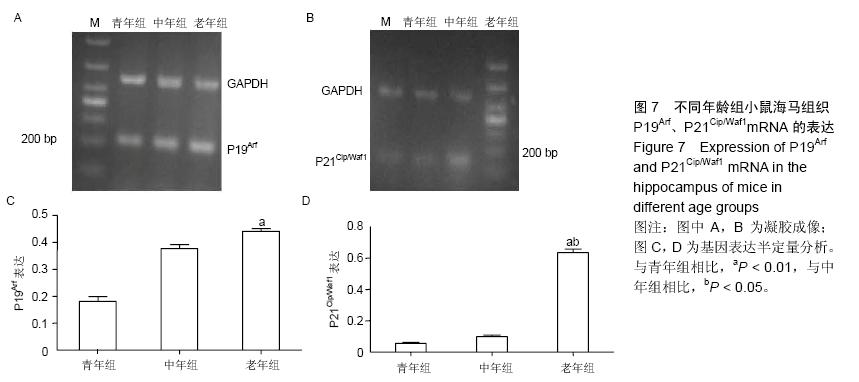| [1] Aimone JB, Li Y, Lee SW,et al. Regulation and function of adult neurogenesis: from genes to cognition. 2014; 94(4): 991-102.[2] Eriksson PS, Perfilieva E, Björk-Eriksson T,et al. Neurogenesis in the adult human hippocampus. Nat Med.1998;4(11):1313-1317.[3] Lois C,Alvarez-Buylla A. Long-distance neuronal migration in the adult mammalian brain. Science. 1994;264(5162):1145-1148.[4] Cameron HA, Woolley CS, McEwen BS, et al. Differentiation of newly born neurons and glia in the dentate gyrus of the adult rat. Neuroscience.1993; 56(2): 337-344. [5] Van Praag H, Schinder AF, Christie BR,et al. Functional neurogenesis in the adult hippocampus. Nature. 2002; 415(6875):1030-1034. [6] Markakis EA, Gage FH. Adult-generated neurons in the dentate gyrus send axonal projections to field CA3 and are surrounded by synaptic vesicles. Comp Neurol. 1999;406 (4):449-460. [7] Deng W, Aimone JB, Gage FH. New neurons and new memories: how does adult hippocampal neurogenesis affect learning and memory? Nat Rev Neurosci.2010; 11(5):339-350.[8] Marin-Burgin A and Schinder AF. Requirement of adult‐born neurons for hippocampus-dependent learning. Behav Brain Res.2012;227(2):391-399.[9] Jessberger S, Clark RE, Broadbent NJ,et al. Dentate gyrus-specific knockdown of adult neurogenesis impairs spatial and object recognition memory in adult rats. Learn Mem.2009;16(2):147-154.[10] Shors TJ, Miesegaes G, Beylin A,et al. Neurogenesis in the adult is involved in the formation of trace memories. Nature.2001;410(6826): 372-376. [11] Winocur G,Wojtowicz JM, Sekeres M, et al. Inhibition of neurogenesis interferes with hippocampus-dependent memory function. Hippocampus.2006;16(3): 296-304. [12] Driscoll I, Howard SR, Stone JC, et al.The aging hippocampus: a multilevel analysis in the rat. Neuroscience. 2006;139(4):1173-1185.[13] Wimmer ME, Hernandez PJ, Blackwell J,et al. Aging impairs hippocampus dependent long term memory for object location in mice.Neurobiol Aging.2012; 33(9): 2220-2224.[14] Arslan-Ergul A,Ozdemir AT,Adams MM. Aging, Neurogenesis, and Caloric Restriction in Different Model Organisms. Aging Dis. 2013; 4(4): 221-232.[15] Prelich G, Tan CK, Kostura M, et al. Functional identity of proliferating cell nuclear antigen and a DNA polymerasedelta auxiliary protein. Nature. 1987;326(6): 517-520.[16] Dillehay KL, Seibel WL, Zhao D,et al. Target validation and structure–activity analysis of a series of novel PCNA inhibitors. Pharmacol Res Perspect. 2015; 3(2):e00115.[17] Hall PA, Levison DA, Woods AL, et al. Proliferating cell nuclear antigen (PCNA)immunolocalization in paraffin sections. J Pathol.1990;162(1):285294.[18] Cammarano MS, Nekrasova T, Noel B,et al. Pak4 induces premature senescence via a pathway requiring p16INK4/p19ARF and mitogen-activated protein kinase signaling. Mol Cell Biol.2005;25(21): 9532-9542.[19] Encinas JM, Michurina TV, Peunova N,et al. Division-Coupled Astrocytic Differentiation and Age-Related Depletion of Neural Stem Cells in the Adult Hippocampus. Cell Stem Cell.2011;8(5):566-579. [20] Gleeson JG, Allen KM, Fox JW,et al. Doublecortin, a brain-specific gene mutated in human X-linked lissencephaly and double cortex syndrome, encodes a putative signaling protein.Cell.1998;92(1):63-72. [21] Srikandarajah N, Martinian L, Sisodiya SM,et al. Doublecortin expression in focal cortical dysplasia in epilepsy. Epilepsia.2009;50(12):2619-2628. |







